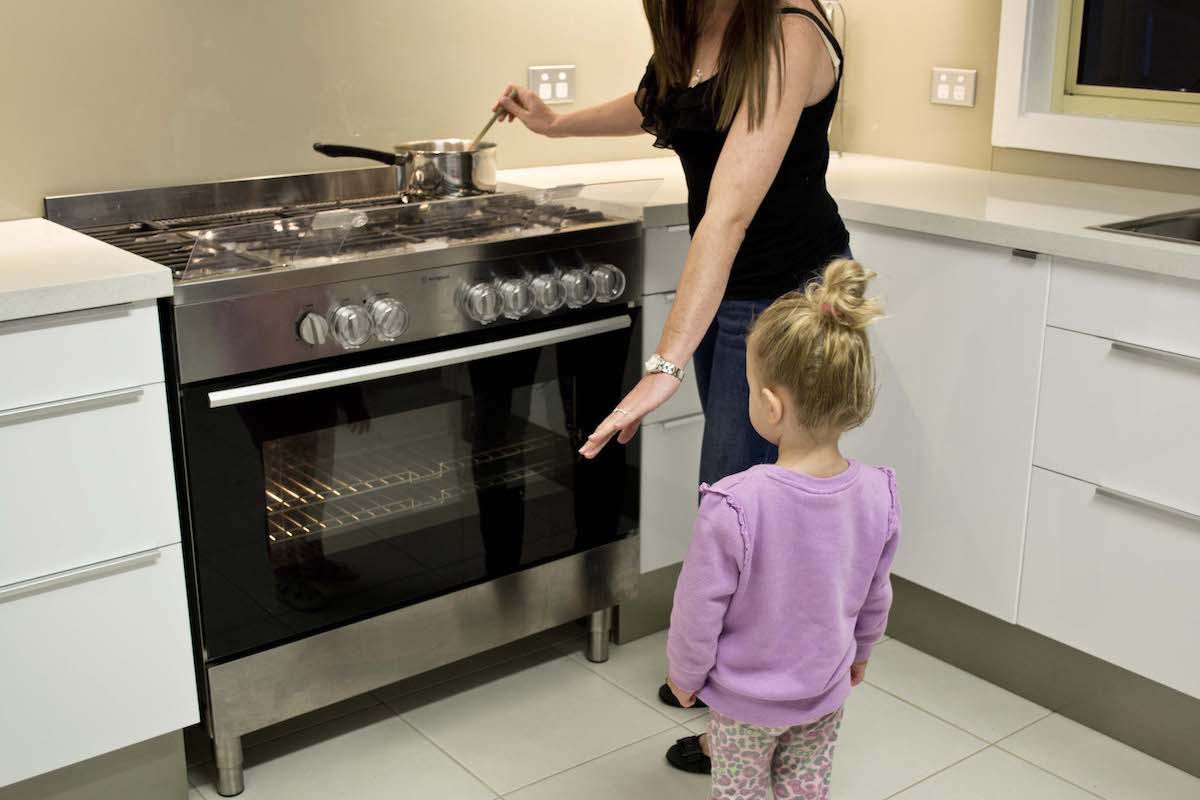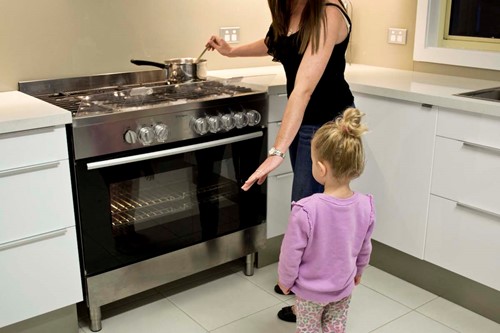Gas Safety for Families with Toddlers: What Parents Need to Know
Parenthood is not an easy task. You have to look out for every aspect of your children’s life. From meeting their nutritional requirements to teaching good manners, you have a lot to do. However, keeping your children safe in the kitchen should be at the top of your parenting list.


Especially the toddler stage is notoriously erratic. Your child will try to explore anything in the kitchen, putting them in a dangerous situation. Therefore, you must evaluate your home and get rid of anything that can possibly be dangerous for your kids.
Gas-related events are frequent, so you must prioritise this safety aspect more than others. In the UK, approximately 31 gas explosions occur in a year on average, leading to the immense loss of valuable lives and property.
A gas alarm or fire extinguisher won’t be enough to navigate your kids in the kitchen safely. Here are a few tips to ensure gas safety for your kids.
Ensure Regular Gas Checks
Faulty appliances can often go unnoticed, which can later lead to a major disaster. The first rule of safety should be to undergo gas safety checks regularly. Always hire a Gas Safe registered engineer to inspect your property and identify faulty appliances.
If your gas appliances are safe, your gas engineer will issue a gas safety certificate. This CP12 will ensure your gas safety and fulfil the legal gas safety requirements. Homeowners who fail to provide gas safety certificates will receive hefty fines and punishments. Moreover, having a gas safety increases your home value. Therefore, opt for regular gas checks to save your family from getting into a miserable situation.
Teach Your Kids to Recognise the Warning Signs
It is nearly impossible to stay at home 24/7. Therefore, your kids should be able to recognise the signs of gas leaks if such an incident happens.
Natural gas is colourless, so teach your kids about the smell of this deadly gas. A potential gas leak most often smells like rotten eggs.
There might be two possible sources if your home smells like rotten eggs. Either sewer gas or natural gas is leaking. The smell from leaking sewer gas would be more intense due to toxic elements such as hydrogen sulphide and methane.
Ask your kids to inform you immediately if they smell anything of this kind. Instruct them to stay away from flame sources. They should be told they are forbidden to go near a match/lighter or flip a switch on or off. If you are away from home, immediately call 911 and evacuate the area as quickly as possible.
Install Carbon Monoxide Detectors
Just like natural gas, carbon monoxide gas is also a deadly gas. What’s worse, you can’t even smell it. It will silently penetrate your body and induce unconsciousness.
Fireplaces, space heaters, wood stoves, and other appliances in your home are major sources of carbon monoxide gas, so you need to install a carbon monoxide alarm on each floor.
You should tell your kids to evacuate the space when the alarm goes off. Moreover, you should open all the doors and windows. Do not enter the premises until the gas engineer has evaluated your property and deemed it safe.
Make Safety Rules for a Kitchen
Keeping your toddler away from the kitchen is an uphill battle. This is a stage when children use their muscles in new ways. They begin jumping, kicking, and exploring new items.
The more their mobility increases. The more they invite safety hazards. Therefore, keep them under close supervision to avoid unwanted incidents.
Here are some gas safety rules parents should consider as part of a safe home.
Keep the kitchen doors closed when not in use
As mentioned, toddlers are little explorers who want to dig everything apart. If your kitchen door is open and you are nowhere near, it would be a recipe for disaster.
They would most likely crawl to the kitchen and put themselves in danger. So keep your kitchen closed when you are not using it.
Be careful with gas stove
Gas stove is one of the kitchen essentials you commonly find in nearly every house. Despite a gas stove providing the best culinary experience, some parents avoid using gas stoves and opt for electric alternatives. But you can ensure your safety without compromising on taste. For instance, using back two burners for cooking meals will prevent your kids from reaching the stove and grabbing the hot pan.
If you have to use the front two burners, turn the direction of the pot handles away so your children can’t access them. Moreover, use child-proof covers for your stove knobs so your kids cannot accidentally turn the burners on.
You can also remove stove knobs when your stove is not in use and store them in upper cabinets or anywhere away from the reach of your children.
Always use a vent/hood fan for white cooking
While you are cooking, always turn on your overhead hood fan or vent. This will ventilate harmful pollutants, such as nitrogen oxides and off-gassing.
This is extremely necessary to ensure safe cooking. Therefore, use it every time you cook something, even boiling water.
Don’t let your Kids play with gas appliances
When your children play with appliances or try to move them, the connector or piping that supplies gas to the appliance might get damaged or can get loose. Moreover, your kids must not hang to the pipework. It might result in gas escaping, which can cause havoc. Therefore, keep kids away from all gas appliances and pipes in your home.
Regularly Check Gas Meters
If your children play outside, ensure their playing area is away from the gas meter installed outside. Strictly instruct your children to stay away from this meter, not hang anything on it, and never place anything in front of it.
Wrapping Up
Being a parent, gas safety is essential for you. Small children should not be allowed to enter the kitchen, especially if not under your supervision.
Moreover, gas stoves should be handled with care. You must cover the stove knobs so your kids cannot accidentally turn them on. Most importantly, your kids should know the sign of unsafe gas and be able to inform you immediately. Moreover, you should keep an updated gas safety certificate with you to ensure your property is safe from any gas hazards.